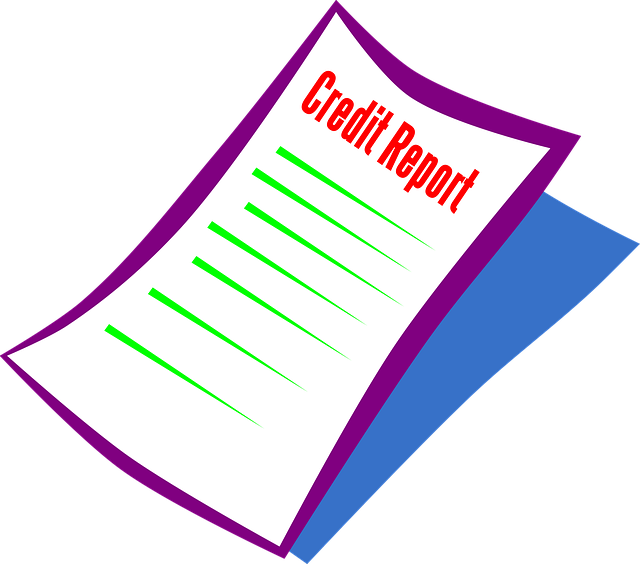Debt consolidation loans from direct lenders combine multiple high-interest debts into a single lower-interest loan with simplified monthly payments, saving borrowers money on interest charges over time. These loans offer transparent terms, flexible repayment plans, and personalized advice, helping individuals regain control of their finances and escape collection calls. Consistent, responsible financial behavior post-consolidation rebuilds credit scores and improves future loan access.
Tired of relentless collection calls? Consolidate your outstanding debts with a powerful solution: a debt consolidation loan from a direct lender. This article guides you through every step, from understanding loan options and choosing the right provider to navigating the consolidation process and repayment strategies. Learn how this approach can help you regain control and build credit strength. Explore the benefits of a direct lender and transform your financial landscape.
- Understanding Debt Consolidation Loans
- Benefits of Using a Direct Lender
- How to Choose the Right Loan Provider
- The Process of Consolidating Outstanding Debts
- Repayment Options and Strategies
- Building Credit After Debt Consolidation
Understanding Debt Consolidation Loans

Debt consolidation loans offer a strategic approach to managing outstanding debts by combining multiple high-interest debt into a single, more manageable loan with a lower interest rate. This process simplifies repayment by reducing the number of payments you need to make each month. A direct lender specializing in debt consolidation loans can be particularly beneficial, as they often provide tailored solutions for borrowers with varying financial backgrounds, including those with bad credit.
These loans work by paying off your existing debts, eliminating the multiple payment streams that can create confusion and lead to missed payments. With a single, consolidated loan, you have one fixed monthly payment at a lower interest rate, making it easier to stick to a repayment plan and reduce overall debt. This not only simplifies financial management but also allows you to save money on interest charges over time.
Benefits of Using a Direct Lender

When considering how to consolidate debts, turning to a direct lender can offer several significant advantages. A direct lender provides a streamlined and often more personalized experience compared to other debt consolidation options. By dealing directly with a financial institution, borrowers can benefit from transparent terms and conditions, avoiding complex processes and potential hidden fees that are sometimes associated with intermediaries.
Using a direct lender for a debt consolidation loan allows individuals to gain better control over their financial situation. Secure debt consolidation loans, for instance, can help simplify the repayment process by combining multiple debts into a single, manageable payment. This approach not only reduces stress but also ensures borrowers stay on track with their financial goals. Additionally, a direct lender might offer flexible repayment plans tailored to individual needs, making it easier to budget and ultimately save money in the long run.
How to Choose the Right Loan Provider

When considering a debt consolidation loan, it’s crucial to choose a reputable and reliable direct lender. Researching different lenders is essential to find one that suits your needs. Look for a provider offering transparent terms, competitive interest rates, and flexible repayment plans. A low-interest rate consolidation loan can significantly reduce the overall cost of paying off your debts.
Additionally, opt for a direct lender who provides expert debt advice tailored to your situation. They should be able to guide you through the process, answer any questions, and help you make informed decisions. This support ensures you understand the terms and conditions, enabling you to make a well-informed choice that aligns with your financial goals.
The Process of Consolidating Outstanding Debts

Consolidating outstanding debts is a strategic approach to managing multiple loans or credit lines by combining them into one single loan with potentially lower interest rates and more manageable terms. This process typically involves working with a direct lender who specializes in debt consolidation loans, allowing individuals to simplify their financial obligations and save money on interest expenses. The first step is to evaluate the current debts and assess eligibility for a consolidation loan based on creditworthiness and debt-to-income ratio. Once approved, the direct lender will offer customized terms, including a fixed or variable interest rate, tailored to the borrower’s needs.
By taking out a debt consolidation loan, borrowers can pay off their existing debts in full and eliminate the multiple monthly payments, making it easier to stay on top of their finances. A secure debt consolidation loan is an option worth considering for those who want to reduce their overall interest expenses while improving cash flow management. Additionally, government-assisted debt help programs may be available for certain individuals, providing support and potentially lower rates through these specialized services.
Repayment Options and Strategies

Many individuals facing a barrage of collection calls find respite in debt consolidation strategies. A popular approach involves securing a debt consolidation loan from a direct lender, who offers a single loan with an agreed-upon interest rate and repayment schedule. This simplifies the process by consolidating multiple debts into one manageable payment. Repayment options for such loans typically include fixed or variable interest rates, with terms ranging from 5 to 30 years.
When exploring how to consolidate debts, it’s crucial to consider various debt help UK services available. Fast cash advance lenders might offer quick solutions, but they often come with high-interest rates and fees. Alternatively, debt consolidation allows for better long-term financial management. By carefully researching different loan providers and understanding the terms, individuals can make informed decisions to break free from collection calls and regain control of their finances.
Building Credit After Debt Consolidation

After successfully consolidating your outstanding debts through a direct lender debt consolidation loan, the next step is to focus on rebuilding your credit score. This involves responsible financial behavior and timely payments. Start by creating a budget that allows for consistent repayments of your consolidated debt. A structured plan ensures you meet repayment deadlines, which positively impacts your credit history.
Additionally, consider using secured credit cards or becoming an authorized user on someone else’s credit card with a good payment history. These strategies demonstrate your ability to manage credit responsibly. Over time, as you consistently make payments and maintain low balances, your credit score will improve, making it easier to access loans in the future, possibly at lower interest rates.
Debt consolidation loans from direct lenders offer a strategic solution for managing multiple debts. By combining outstanding balances into a single loan with a lower interest rate, you can simplify repayment and save money. This article has guided you through the process, from understanding loan options to choosing a reputable provider and managing your debt effectively post-consolidation. Remember, a debt consolidation loan direct lender can be a powerful tool for financial transformation, but responsible borrowing and long-term repayment strategies are key to success.
